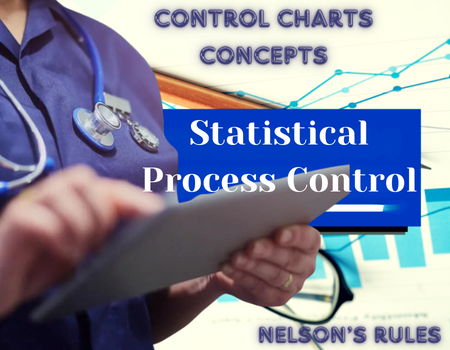Call us: +1-855-202-3299
Email: [email protected]
Statistical Process Control through the use of control charts and Nelson’s Rules
Speaker: John C. Fetzer
Speaker Designation: Founder and Principal, Consultant Fetzpahs Consulting

Call us: +1-855-202-3299
Email: [email protected]
Speaker: John C. Fetzer
Speaker Designation: Founder and Principal, Consultant Fetzpahs Consulting

Achieving compliance under Good Laboratory Practices (GLP) may pose challenges. However, establishing a monitoring system for assessing the performance of methods and instruments can alleviate these difficulties. Statistical tools can effectively oversee critical variables during procedure execution and instrument performance. Employing Nelson's rules allows for the evaluation of data, determining whether it aligns with expected performance or deviates statistically from acceptable standards. Importantly, this assessment can occur even when the overall procedure remains in compliance, enabling the continued use of the procedure as intended.
Most laboratories monitor the results of a procedure by tracking the results of running standards and using a control chart. This, however, is a very simplistic and limited way of assessing performance. When the procedure fails, the laboratory is not in compliance. This is a very dire situation.
Many of the activities in the procedure follow Gaussian statistics. This means that choosing a metric for key activities or parts of the procedure can show the causes of the overall problem. Using the 3-sigma occurrence as the only evaluation is also a poor approach. Statistically, there are many other tests for good Gaussian behavior. The set of Nelson’s rules gives these. This allows for monitoring symptoms and catching problems as they develop.
Statistical Process Control through control charts and Nelson's Rules play a crucial role in modern quality management. By harnessing statistical methods and visual representations, organizations can not only monitor the stability of their processes but also identify and address deviations promptly. This proactive approach fosters a culture of continuous improvement, ensuring that products and services consistently meet or exceed customer expectations.

Dr. Fetzer has had many roles in compliance under Good Laboratory Practices and ISO 17025. He developed liquid chromatography and physical-property assays for a variety of compounds. He supervised a compliant laboratory for over a decade. He has performed outside audits for "mock" compliance audits. He has been training in this topical area for many years.
Dr. Fetzer's expertise extends beyond academia, having published over 100 peer-reviewed scientific articles, 2 books, and 8 book chapters. He was key in overseeing the Good Laboratory Practices accreditation for a prominent research chromatography laboratory. Additionally, Dr. Fetzer has shared his knowledge by conducting numerous short courses on GLP and ISO 17025 compliance.
Beyond his contributions to the scientific community, Dr. Fetzer offers Analytical Chemistry Consulting Services and Scientific Career Development Consulting services. As an American Chemical Society tour speaker, he has delivered over twenty invited lectures at conferences, universities, and government laboratories, further solidifying his impact in the field.